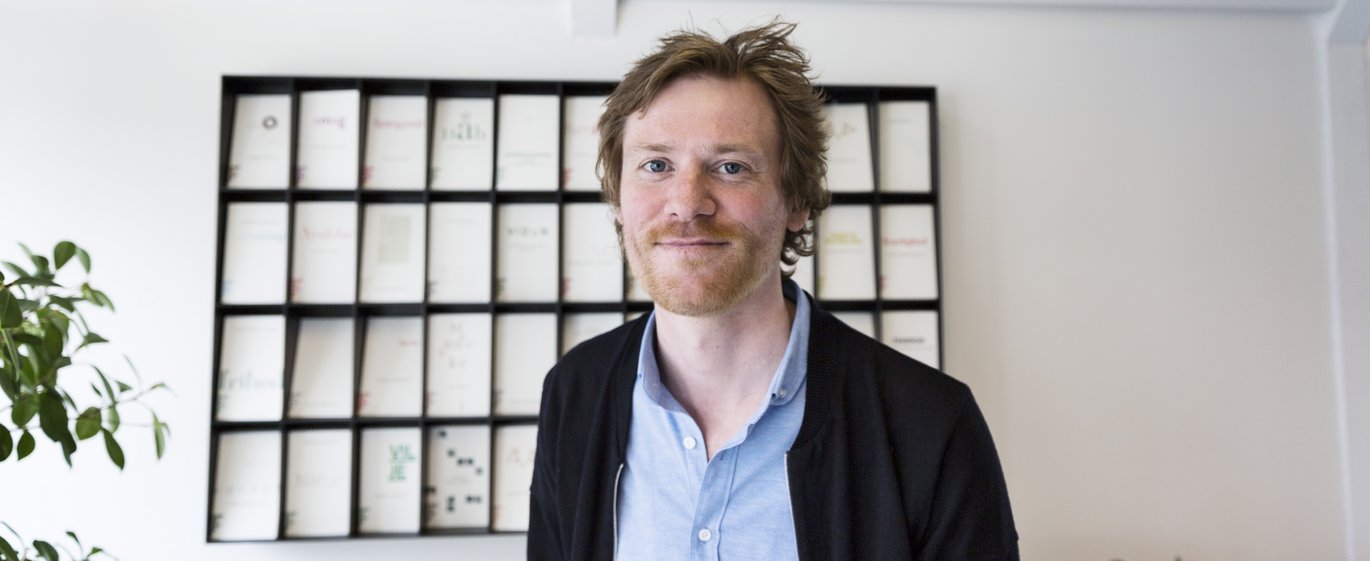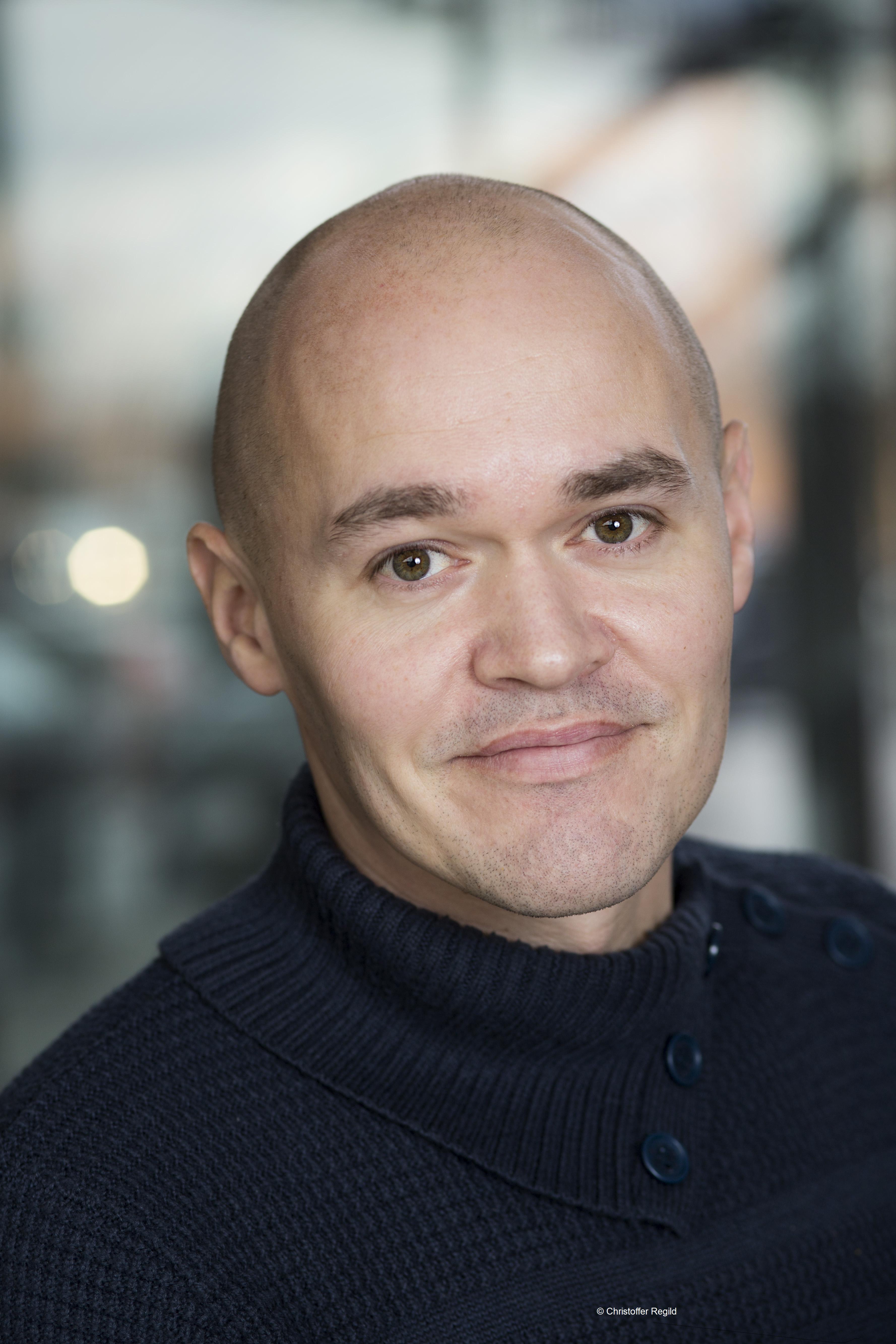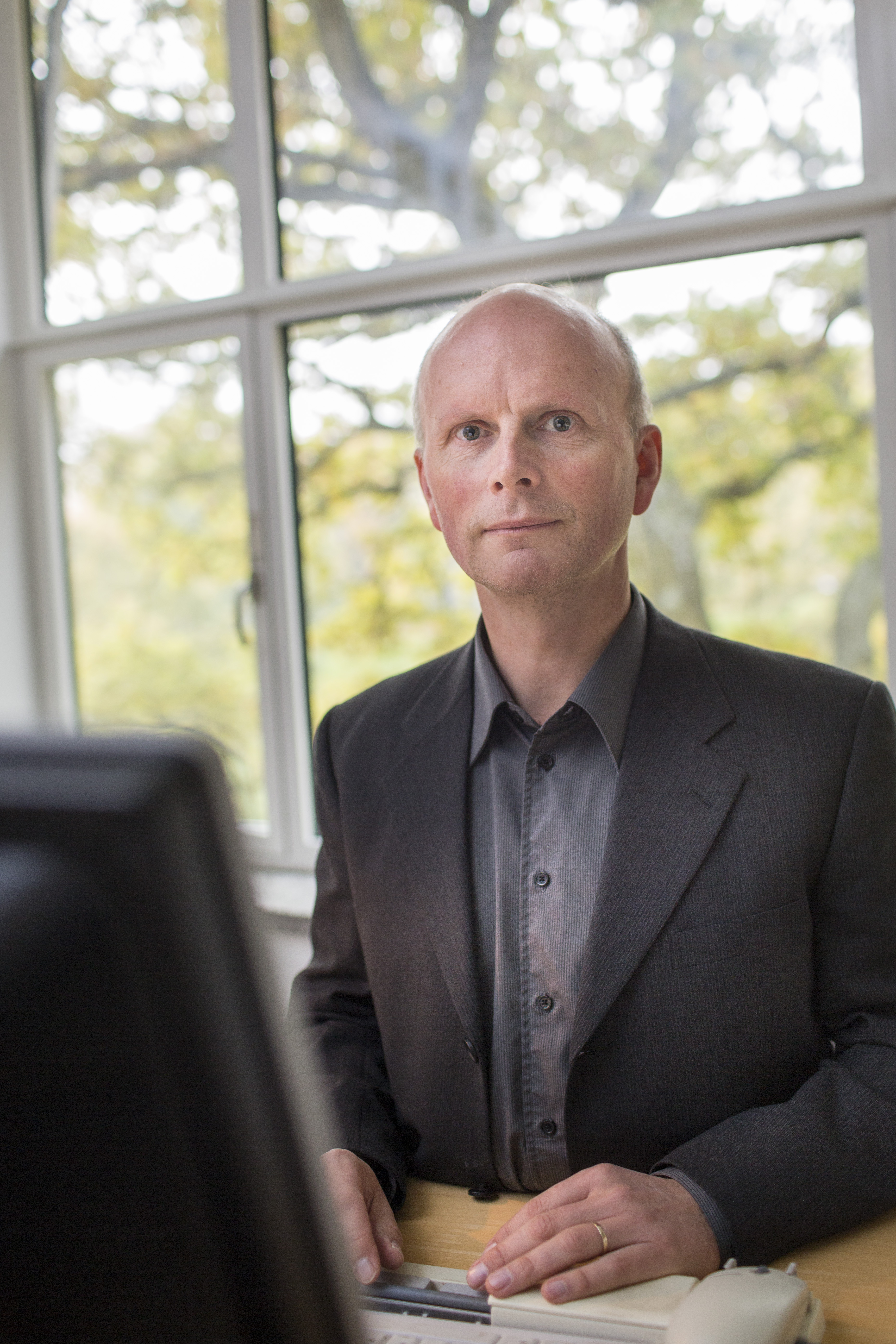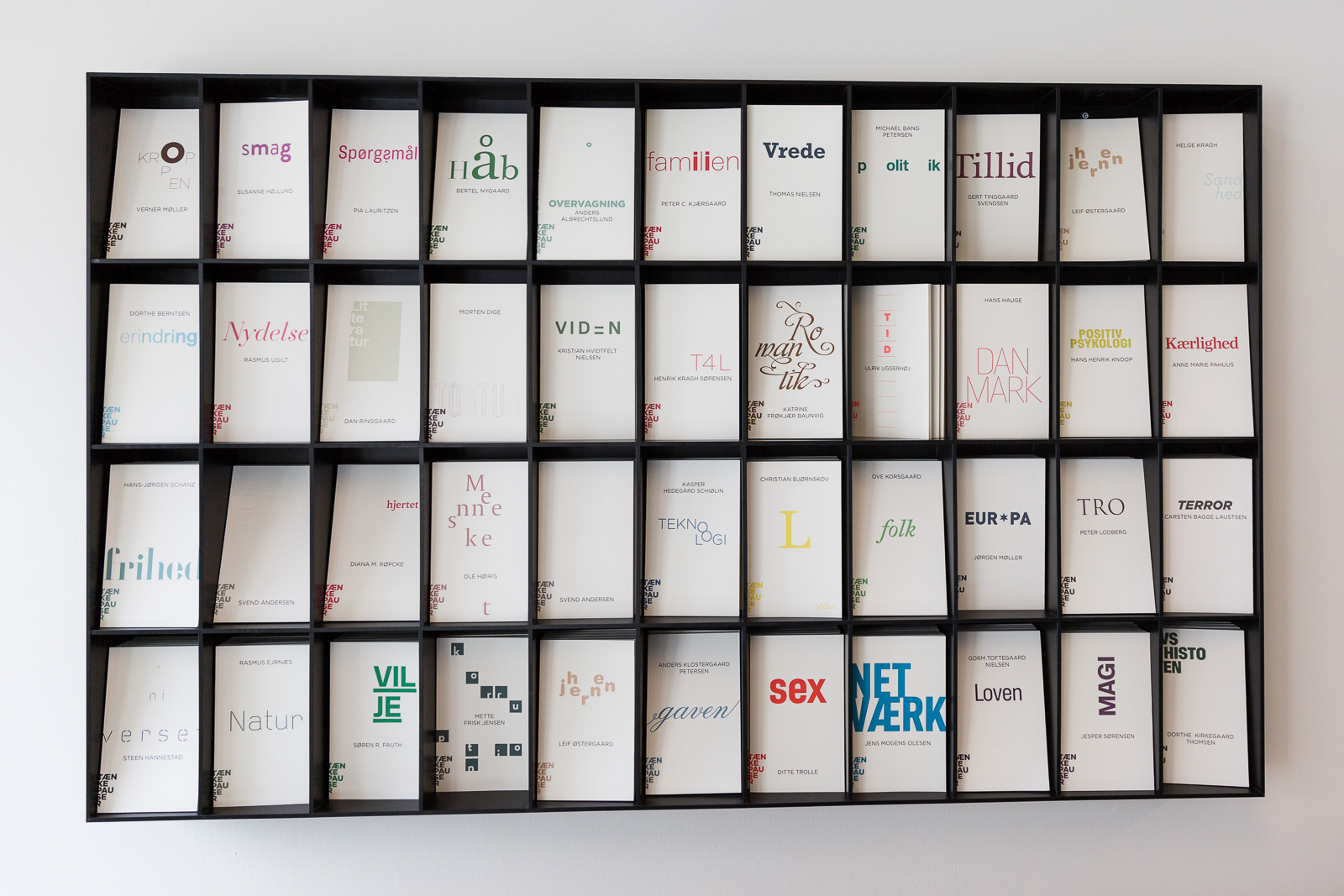"Just hard work"
Despite being only sixty pages long, it can take up to nine months to write a book for the Reflections series. It is not uncommon for the manuscript to go back and forth between author and editor six to eight times. Nevertheless, researchers are queuing up to write one of the Reflections.




Just inside the door of the Aarhus University Press office, all 49 Reflections that have so far been published since the series of easily accessible research dissemination was launched in 2012, are on display. Back then, before they had any titles to refer to, the publishers had to make a big effort to convince busy researchers that they should spend time writing a book for the Reflections series. But that is no longer the case, explains Søren Mogensen Larsen, who is managing editor and the person responsible for the Reflections series.
"After a year researchers began to contact us. Now we get weekly enquiries from researchers."
Researchers are not the only people who are interested in the little books. Readers have also welcomed them and until the Arnold Busck book stores introduced a minimum price for books that could be included in the bestseller list, several of the titles topped the list of bestsellers for academic books. Since then the books, which only cost DKK 40 each, have been excluded from the list.
"I think the series has been a success because people want to learn and they want to be entertained. The Reflections series does a good job of combining simplicity with heavy research, they contain specific stories and make academically informative points," says Larsen.
It takes time to write a book in the Reflections series
Even though the books in the Reflections series are never longer than sixty pages, they still take time to write. Between six and nine months is not uncommon, explains Larsen.
"For the vast majority of researchers, writing a Reflections book is a labour of love that they write in their leisure time besides their research and teaching."
On top of this, the small books undergo an extra thorough editorial process. Whereas an ordinary textbook typically undergoes one or two editorial rounds, here the manuscript often goes back and forth between the managing editor and the author six to eight times.
"That’s pretty extreme and the first two to three editorial rounds are really hard with hundreds of comments," he explains and continues:
"Nothing in the book should just be taken for granted, and the text must be top-tuned in its communication without any stale and boring passages. The books must capture the reader's attention with good, specific and eye-catching stories and in this way, introduce a little knowledge and science," he explains.
The managing editor emphasises that it is not because that texts the publisher receives from the researchers are poorly written.
"But we have an extremely high level of ambition about the research dissemination of this series. Achieving simplicity is hard work," he says.
Time-consuming process
One of the authors who is currently finishing a book for the Reflections series is Stefan Kjerkegaard, who is associate professor of Scandinavian Languages and Literature. His Reflections will be published in October and is titled 'Humor'.
"I wrote it during a research semester at UC Berkeley, where I was writing a textbook and at the same time wrote a draft of the Reflections book based on one of my lectures and a course that I held together with a colleague. Writing the draft didn’t take long, I think it took three weeks."
But only then did Kjerkegaard fall into the clutches of Søren Mogensen Larsen. And the associate professor, who is the author of several books, agrees that the editing process is more laborious than normal.
"You could almost say that Søren is co-author of the book," he says with a smile, and continues:
"He doesn't just edit, he co-writes," says Kjerkegaard, though he views this as a sign of the managing editor’s enthusiasm and describes the collaboration as very good and rewarding.
The tyranny of examples
Facts about the Reflections series
The book series Reflections is Aarhus University Press's biggest success. So far, a total of 800,000 copies have been the published. Each new book is published in a print run of 12,000 - 14,000 copies, and some of the titles have been reprinted in three, four or even five print runs.
- Two of the titles from the series have been translated into English; ‘Positive Psychology’ and ‘Trust’.
- A total of 49 Reflections have been published to date, with a new title published every month (except for July and August).
- Nørrebro Theatre performs a monologue based on each month’s Reflections on the day before publication.
- The authors receive a one-off royalty for their book. This is same for all authors and independent of sales figures.
- Read more about the Reflections series
Reflections – From start to publication
When Søren Mogensen Larsen receives an inquiry from a researcher who would like to write a book for the Reflections series, the process begins with an introductory meeting. He typically asks for a synopsis and a few preliminary pages so he can decide whether there could be a common basis for further work on the book.
The author submits a draft manuscript and Larsen then makes extensive comments. Once the manuscript is ready, it is sent to a peer reviewer, after which the author receives the manuscript again and makes corrections before sending it to Larsen.
One of the things that makes writing a Reflections special is what Kjerkegaard calls the ‘tyranny of examples’.
"Søren kept on at me to find specific examples rather than expositions of theoretical issues, which meant that I had to spend a great deal of time fact-checking examples to make certain that I reported them correctly."
But Kjerkegaard admits that this helps the research dissemination which is precisely what distinguishes Reflections. He also says that the high-level of intervention from the editor is easier for him to accept, because the topic of humour lies on the periphery of his subject area.
"It’s not my lifeblood, but more of a side-line that I’ve had an interest in which fits the format for the Reflections series. A book about humour shouldn’t be long and heavy going, it should be something you want to read. It would be much more difficult for me to boil my actual area of academic expertise, which is literature, down to sixty pages," says Kjerkegaard, while also definitely recommending other researchers to write one of the books themselves.
Interview requests from around the world five years after publication
The same recommendation comes from professor of political science Gert Tinggaard Svendsen, who was one of the first researchers to write a book for the Reflections series. His book was originally published in 2012 with the title Tillid in Danish (Trust in English, ed.). It has subsequently been translated into English, Chinese and soon also Dutch. And even though the book appeared almost five years ago, Svendsen still receives requests for interviews and lectures on the subject of trust from both Denmark and abroad.
"I've just participated in a Brazilian television show and I receive calls from journalists from all over the world. Of course, this is a combination of the fact that the book is translated into English, so that journalists from all over the world have easy access to my research, and that my field of research which includes trust, has received great attention abroad," he says.
Learned a lot from the corrections
He has benefited greatly from the back-and-forth with Aarhus University Press in connection with the writing of the Reflections book.
"It's different than writing a textbook or a scientific article in that I don’t have to use references and I can write in a more light-hearted and everyday way. It was actually a pleasure to get the editor's corrections, and this exercise has really benefited me greatly when I’ve written feature articles and the like afterwards. I've learned a lot from the corrections."
Svendsen was also tasked with finding specific examples to illustrate his points.
"Having to find those examples was a real eye-opener. It was of course a rewarding field to find examples in because Denmark is a world champion in trust, but I realised that many of the things we take for granted in society are actually an expression of a high-level of trust. When we let a pram stand outside a café. When we drive each other’s children to and from football tournaments. When we leave our children with other parents we don’t know very well so the children can play together."
As a researcher, it is also important for him to make his research accessible to others and not only his peers.
"It’s a great pleasure for me to communicate academic material in an easy-to-understand manner, and I’m very aware that everybody should also have access to the research I’m doing for taxpayers' money," says the professor.

